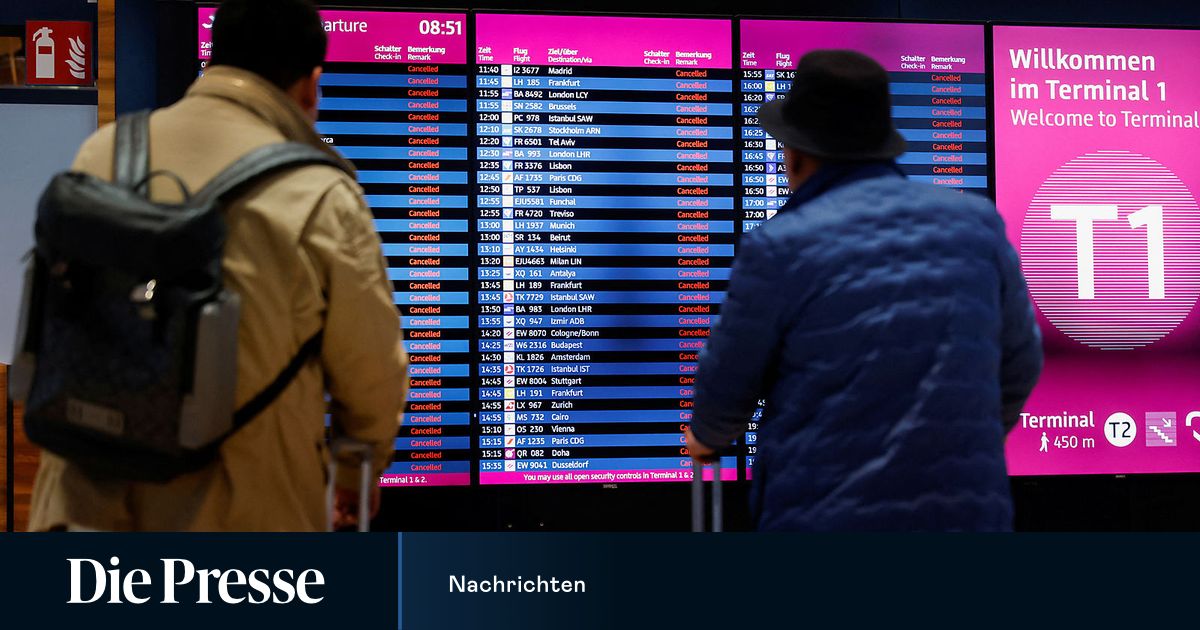The union called on 6,000 workers to stop work by 11:59 pm. His demand: 500 euros more salary for employees.
One of the most important warning strikes in recent years began at Berlin-Brandenburg Airport (BER). A spokesman for Verdi confirmed this on Wednesday morning. The union called on the 6,000 workers of the airport company, ground handling services and aviation security to stop work until 23:59. As a result, no passenger traffic can be processed on the BER on Wednesday. Originally planned there were 300 takeoffs and landings with around 35,000 passengers.
A spokeswoman at Schwechat Airport and the Austrian Airlines (AUA) press office announced on Wednesday that nine flights on the route between Berlin and Vienna were canceled on Wednesday, including five outbound flights and four return flights. In relation to the total number of flights at Schwechat Airport, the effects are therefore smaller. The AUA will actively inform affected passengers of changes or rebookings, but recommends that passengers check their flight status on the AUA website in a timely manner.
Union demands another 500 euros in wages
Verdi demands an extra 500 euros in salary per month for employees of the airport company and groundhandling services with a collective agreement term of twelve months. In both negotiations, the employer side is demanding significantly longer contract periods.
The last major warning with similar consequences occurred several years ago: in April 2018, hundreds of flights across Germany had to be canceled because collective bargaining for municipal and federal employees was not making progress.
In eight German federal states, tens of thousands of employees fell in a warning strike. In addition to airports, urban transport, kindergartens, clinics, administrations and indoor swimming pools were also affected in several places. Airports were involved at the time because, even after privatization, many municipal employees were still working on baggage and identity checks, among other things.
(APA)

